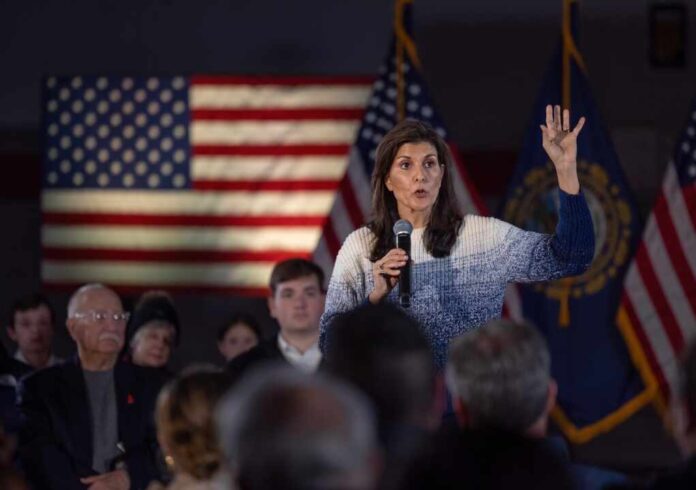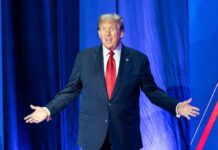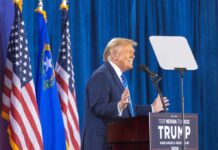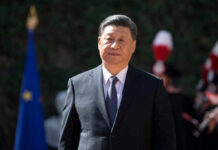
Former U.N. Ambassador Nikki Haley has accepted a position at the Hudson Institute a neoconservative think tank in Washington, D.C. The announcement comes on the heels of her decisive defeat by President Donald Trump in the early Republican presidential primary contests of 2024.
The Hudson Institute is known for its advocacy of American intervention abroad and a robust approach to global affairs. Institute President and CEO John P. Walters commended Haley as “a proven effective leader on both foreign and domestic policy.”
I'm shocked, shocked I tell you, that Nikki! landed at the Hudson Institute. . . https://t.co/O5o3kh2gF1
— Ned Ryun (@nedryun) April 15, 2024
Haley’s appointment however is seen by America First proponents as aligning with the globalist and international socialist agendas often associated with such institutions. Her past support for America’s alliances like with Ukraine differs significantly from President Trump’s focus on reducing U.S. involvement in foreign conflicts.
Throughout her unsuccessful presidential campaign Haley unapologetically promoted her globalist vision of increased American involvement in prolonged costly foreign wars. Her time at the U.N. and new role at Hudson also raise doubts about her ideological consistency and future in a GOP still heavily shaped by Trump’s vision.
Disgraced former presidential candidate Nikki Haley joins the Hudson Institute to influence foreign and domestic policy.
The Hudson Institute receives funding from the Koch Family Foundation, Bill and Melinda Gates Foundation, Silicon Valley Community Foundation, and others.… pic.twitter.com/LCbEEjM4DH
— AF Post (@AFpost) April 15, 2024
Although Haley’s position at Hudson enables her to continue influencing foreign policy discussions it also places her at the heart of a think tank known for its interventionist stance — an approach that many grassroots conservatives have grown increasingly wary of. This move could be viewed as a strategic positioning perhaps with an eye on a future political resurgence.
Even so it underscores the ongoing ideological struggle within the Republican Party between the America First movement and the interventionist doctrines that have defined much of the party’s establishment in the 21st century. As the GOP strives to solidify its identity in this crucial election year figures like Haley will play a pivotal role in shaping its trajectory.
The impact of Haley’s role at Hudson on her standing and her relationship with the party’s base remains uncertain. The upcoming months will provide insight into how Haley’s new position influences her political future and the broader ideological tug-of-war within the Republican Party.
































